Expense tracking in professional service firms can be challenging, especially without the right tools. It demands meticulous attention to detail and precision as each expense contributes to the overall financial picture.
Mastering expense tracking isn't merely about maintaining operations; it's about gaining insights into expenditure to make informed decisions that foster growth.
From uncovering hidden costs to optimizing operational efficiency, this blog aims to be your financial guide. It explores the essentials of expense tracking, focusing on professional service firms' specific needs and challenges, and leads your firm toward a more profitable and sustainable future.
Overview of expense tracking with professional service firms
Expense tracking is a crucial aspect of financial management for professional service firms. Effective expense tracking ensures that these firms can accurately account for costs incurred during projects and maintain profitability.
For efficient expense tracking, professional service firms need to implement comprehensive systems and processes. This includes utilizing expense tracking software and implementing clear expense policies and approval procedures. Additionally, regular expense reporting and analysis are essential to identify cost-saving opportunities and make informed financial decisions.
By prioritizing expense tracking, professional service firms can streamline financial operations, maintain project profitability, and enhance overall financial management.
Importance of expense tracking for professional service firms
Expense tracking is an essential aspect of managing finances for professional service firms. Whether it's a law firm, accounting practice, or consultancy, tracking expenses is crucial for maintaining profitability and ensuring accurate billing for clients. This brief overview will explore why expense tracking is important for professional service firms and highlight some key considerations.
1. Expense tracking is crucial for professional service firms because it is necessary for accurate client billing. These firms often incur various expenses on behalf of their clients, such as travel expenses, research materials, or other necessary costs. By meticulously tracking these expenses, firms can ensure they are appropriately reimbursed and avoid any financial discrepancies.
2. Expense tracking also helps professional service firms closely monitor operational costs. By keeping track of expense categories like office supplies, employee training, or software subscriptions, firms gain a clearer understanding of their spending patterns and can make informed decisions to optimize their budget and reduce unnecessary costs.
3. Comprehensive expense tracking enables firms to maintain compliance with both internal policies and external regulations. Many professional service industries have specific guidelines and regulations regarding expense management. By implementing robust tracking systems, firms can ensure they adhere to these guidelines and mitigate the risk of non-compliance.
Learning about expense reporting
Expense reporting is the process of tracking, analyzing, and reporting on business expenses incurred by employees for work-related purposes. It involves collecting receipts, categorizing expenses, and submitting detailed reports for reimbursement or accounting purposes.
Expense reporting plays a crucial role in maintaining financial transparency and control within organizations. It provides insights into spending patterns, identifies areas of potential cost savings, and ensures compliance with company policies and external regulations.
By implementing an effective expense reporting system, businesses can streamline their reimbursement processes, reduce errors and fraud, and improve overall financial management. It enables decision-makers to assess the company's financial health, make informed budgeting decisions, and allocate resources efficiently.
Challenges faced by professional service firms
Expense reporting can be particularly challenging for professional service firms. Here are some of the challenges faced with expense reporting.
-PS firms often operate with a distributed workforce, where employees are constantly on the move, working on different client projects. This makes it difficult to track and manage expenses effectively. They also deal with complex billing structures, varying rates, and frequent travel expenses, which adds another layer of complexity to their expense reporting process.
-The need for accuracy and compliance also poses a great challenge. They have to ensure that all expenses are categorized correctly and comply with industry regulations. This can be time-consuming and prone to errors, especially when using manual methods or outdated systems.
-Professional service firms often struggle with inefficient approval processes. With numerous stakeholders involved, delays in approvals can lead to bottlenecks, affecting client billing and cash flow.
Professional service firms should invest in modern expense reporting solutions that automate the process, provide real-time visibility, and streamline approvals. These solutions offer centralized platforms and integrations with accounting systems, making expense management more efficient, accurate, and compliant.
Essential elements of successful expense tracking programs
Implementing successful expense tracking programs is crucial for businesses of all sizes. These programs provide a way to monitor and manage expenses efficiently, thereby improving financial control. But what are the essential elements needed in these programs?
Automation and integration
By automating the process, businesses can save time and reduce errors associated with manual data entry. Integration allows for seamless syncing of data across multiple systems, such as accounting software or payroll systems. This ensures that all expenses are accurately recorded and accounted for.
Automation and integration can enable real-time tracking and reporting, providing businesses with up-to-date insights into their spending patterns. With these tools in place, businesses can streamline their expense tracking processes, improve productivity, and make more informed financial decisions.
Real-time monitoring
Real-time monitoring allows businesses to keep a constant watch on their expenses, ensuring that they stay within budget and identify any potential issues before they escalate. With real-time monitoring, businesses can instantly track and categorize expenses as they occur, making it easier to identify patterns and trends.
This enables proactive decision-making, such as adjusting budgets or reallocating resources. By utilizing technology and automation, real-time monitoring streamlines the expense tracking process, reducing manual errors and saving time. This helps in accurate and up-to-date information, helping businesses stay in control of their expenses and achieve financial success.
Customization options
A key element that sets successful expense tracking programs apart is the availability of customization options. Every organization is unique, which means their expense tracking needs will differ. Having the option to customize the program ensures it aligns perfectly with your business processes.
Customization options include creating expense categories specific to your industry, setting budget limits, and modifying approval workflows. With these options, you can tailor the program to fit your company's unique requirements and policies, ensuring seamless integration into your existing systems.
By leveraging customization options, you can create a hassle-free expense tracking experience that saves time and improves efficiency.
Procedure for professional service firms to implement
Implementing an effective expense tracking system is crucial for professional service firms to manage their finances efficiently. It's important to do it the right way, and here's a step-by-step procedure to help streamline their expense tracking process.
1. Assess your current expense tracking system: Begin by evaluating your current expense tracking process. Identify any shortcomings or areas for improvement.
2. Set clear goals: Define what you want to achieve with your expense tracking system. Whether it's reducing costs, improving accuracy, or streamlining workflows, clear goals will guide your implementation.
3. Choose the right expense tracking software: Look for a solution that aligns with your firm's specific needs. Consider factors like ease of use, integration capabilities, reporting features, and security.
4. Customize the software to fit your processes: Tailor the software to reflect your firm's unique expense tracking requirements. Set up custom expense categories and workflows to ensure accurate tracking and reporting.
5. Train your team: Provide comprehensive training to your employees on how to use the expense tracking software effectively. Make sure everyone understands the importance of accurate and timely expense reporting.
6. Implement a policy for expense submission: Establish a clear policy for expense submission, including deadlines and required documentation. Communicate this policy to all employees and enforce it consistently.
7. Monitor and analyze: Regularly review expense reports to identify any trends or areas of improvement. Use the reporting features of your expense tracking software to gain valuable insights and make data-driven decisions.
8. Keep striving for continuous improvement: Seek feedback from your employees on the effectiveness of the expense tracking system. Continuously explore ways to enhance the process and address any challenges that arise.
Common pitfalls to avoid
When implementing an expense tracking system for professional service firms, it's crucial to be aware of the common pitfalls that can hinder progress. By being proactive and avoiding these common mistakes, you can ensure a seamless transition to a more efficient expense tracking process and financial management.
1. Lack of clear policies: One common mistake is not having clear expense policies in place. This can lead to confusion and inconsistent practices. Define what expenses are reimbursable, the approval process, and any spending limits.
2. Lack of awareness arounf technology: Many firms still rely on outdated manual processes for expense tracking. Embrace technology solutions that automate expense management, such as cloud-based software. This reduces errors, streamlines workflows, and provides real-time data for analysis.
3. Inadequate training: Properly train employees on the expense tracking procedures and software features. Ignoring training can result in mistakes, non-compliance, and inefficient utilization of resources.
4. Lack of regular audits: Failing to conduct regular audits can result in compliance issues and fraudulent activity going unnoticed. Implement a routine audit process to ensure accuracy and detect any irregularities.
5. Ineffective communication: Don't assume employees are aware of the expense tracking procedures. Regularly communicate updates, changes, and reminders to ensure everyone is on the same page.
Advantages of expense tracking proficiency
Understanding the advantages of mastering expense tracking can significantly benefit professional service firms. Here are some major advantages of expense tracking.
Increased efficiency
Managing expenses efficiently is crucial for professional service firms. By mastering expense tracking, these firms gain several advantages, one of which is increased efficiency. When expense tracking is done effectively, it eliminates the need for manual processes and reduces the likelihood of errors.
By automating the tracking process, professionals can save valuable time and focus on more important tasks. Additionally, having a proficient expense tracking system allows for better organization and visibility into expenses, making it easier to analyze spending habits and identify areas for cost reduction. Professional service firms can ultimately streamline their operations and optimize their financial management by achieving expense tracking proficiency.
Cost savings
By being proficient in expense tracking, firms can identify areas where expenses can be reduced or eliminated altogether. This allows businesses to optimize their spending and allocate resources more efficiently. Additionally, with accurate expense tracking, firms can identify any unnecessary or excessive expenses, which can lead to significant cost savings over time. Professional service firms can improve their bottom line and achieve greater financial stability by being proficient in expense tracking.
Improved compliance
By maintaining a high level of expertise in expense tracking, firms can ensure adherence to industry regulations and company policies. This proficiency enables accurate and complete documentation of expenses, eliminating the risk of non-compliance and potential legal issues. Furthermore, enhanced compliance can build trust with clients, showcasing the firm's dedication to transparency and ethical practices. With precise expense tracking, professional service firms can confidently navigate audits and demonstrate their commitment to regulatory compliance, establishing a strong reputation in the industry.
Suggestions for effective expense tracking
Tracking expenses efficiently is crucial for professional service firms to maintain financial stability and make informed business decisions. Here are some suggestions to help you master expense tracking.
Expense tracking best practices for professional services firms
1. Utilize expense tracking software: Invest in a reliable expense tracking software that suits the needs of your professional service firm. These tools can automate the process, simplify data entry, and generate reports, saving you time and increasing accuracy.
2. Set expense policies and guidelines: Create clear policies and guidelines for your employees regarding expense tracking. This will ensure consistency and compliance with company regulations and prevent unauthorized expenses.
3. Save and categorize receipts: Encourage your employees to save and categorize receipts systematically. This will provide you with proper documentation and make it easier to justify expenses during audits.
4. Regularly review and reconcile expenses: Make it a habit to review and reconcile expenses regularly. This will help identify any discrepancies or potential errors and allow you to take corrective measures promptly.
Staying updated with industry changes
Keeping up with industry changes is crucial for professional service firms looking to master expense tracking. Here are some suggestions to help you stay ahead of the game:
1. Research industry benchmarks: Stay informed about the average expenses in your industry to set realistic targets and identify areas where you can cut costs.
2. Follow industry news and updates: Subscribing to industry newsletters, blogs, and social media channels can provide valuable insights into upcoming regulations, trends, and best practices.
3. Attend conferences and workshops: Participating in industry events allows you to network with peers, learn from experts, and learn about the latest expense-tracking techniques and tools.
By staying updated with industry changes, you can adapt your expense tracking strategies accordingly, ensure compliance, and optimize your firm's financial health.
Top software recommendations
When it comes to effectively managing expenses in professional service firms, the right software can make all the difference. With numerous market options tailored to meet these firms' specific needs, it can be overwhelming to choose the best one. Here are our top software recommendations for mastering expense tracking:
1. QuickBooks: A popular choice among professionals, it offers diverse features like expense categorization, invoicing, and integration with various financial institutions.
2. Expensify: Ideal for streamlining expense reporting, this software automates receipt capturing, expense approval, and reimbursement processes.
3. Zoho Expense: Known for its user-friendly interface, Zoho Expense offers seamless integrations with popular accounting software, along with features like automatic credit card reconciliation.
4. Xero: With powerful expense management features, Xero simplifies tracking expenses, creating reports, and managing vendor bills.
Choosing the right expense tracking software
Choosing the right expense tracking software is crucial for professional service firms aiming to streamline their financial operations. With various options available in the market, it can be overwhelming to make the best decision. There are several factors to consider when making this decision.
-The software should have a user-friendly interface and should integrate with existing accounting systems to streamline the process.
- Customization options for expense categories and reporting formats are also important.
- Security features like data encryption and user access controls are crucial to protect sensitive financial information.
- Consider the software's cost and scalability, ensuring it can accommodate your firm's growing needs.
By considering these factors, you can find the perfect expense tracking software to meet your firm's unique requirements.
But with so many options out there, how do you choose the right one?
It's like trying to find the perfect pair of shoes - you want something that fits just right and makes you feel like a million bucks.
Well, look no further than Rocketlane.
Rocketlane offers a comprehensive suite of financial management features tailored to streamline project finances effectively. Here's how Rocketlane empowers professional service firms with its robust capabilities:
1. Rate Cards and Cost Rates: Simplify billing processes by creating and managing rate cards for different roles while assigning cost rates to users to ensure accurate project cost calculations.
2. Resource Management: Efficiently plan project budgets and allocate resources by aligning costs, rates, and availability, facilitating optimal resource utilization and budget management.
3. Time Tracking: Enhance project accountability and performance monitoring by capturing actual time spent on tasks and projects, enabling project progress and resource utilization analysis against planned estimates.
4. Billing Types: Choose from flexible billing methods, including fixed fees, time and material, and nonbillable options tailored to project requirements and client agreements.
5. Project Financial Reporting: Gain valuable insights into project finances with comprehensive reports tracking budget usage, forecasted versus actual revenue and costs, and project profitability, supporting informed decision-making and financial transparency.
6. Portfolio Reports: With detailed reports, ensure accurate revenue recognition across project portfolios, aiding compliance with accounting standards, revenue forecasting, and financial planning and analysis efforts.
Try Rocketlane for free and discover streamlined project finances at your fingertips.
{{demo}}
Further reading
1. Rocketlane: A time and expense management solution tailored to your business
2. A guide to project-based accounting
FAQs
1. What is expense tracking in the context of professional service firms?
Expense tracking in professional service firms involves systematically recording, analyzing, and managing all costs incurred in the process of delivering services to clients. This includes direct expenses like travel and materials and indirect costs such as administrative expenses and utilities.
2. How can a firm choose the right expense tracking software?
Choosing the right expense tracking software involves assessing the firm's specific needs, considering factors like the size of the firm, the complexity of projects, integration capabilities with existing systems, user-friendliness, scalability, and cost. It’s also beneficial to review software demos and user feedback.
3. What best practices should professional service firms follow for effective expense tracking?
Best practices for effective expense tracking include establishing clear expense policies, categorizing expenses meticulously, training staff on processes and tools, conducting regular audits, and leveraging technology for automation and integration with other financial systems.
4. How can firms ensure accurate and timely employee expense reporting?
To ensure accurate and timely employee expense reporting, firms should implement user-friendly reporting tools, set clear deadlines and guidelines, offer training and support, create a straightforward approval process, and communicate the importance of compliance with company policies.
5. What are the challenges in expense tracking for professional service firms, and how can they be addressed?
Challenges in expense tracking include data entry errors, receipt management, policy enforcement, and real-time budget monitoring. These can be addressed by adopting automated systems that reduce manual input, utilizing mobile apps for receipt capturing, implementing strict policy adherence checks, and using real-time analytics.
6. What role does expense tracking play in client billing and satisfaction?
Expense tracking plays a vital role in client billing by ensuring that all billable expenses are accurately and transparently recorded, which contributes to fair and precise invoicing. This transparency and accuracy in billing can significantly improve client trust and satisfaction.





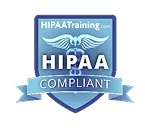
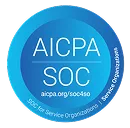
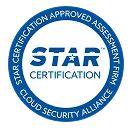
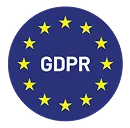
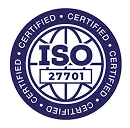









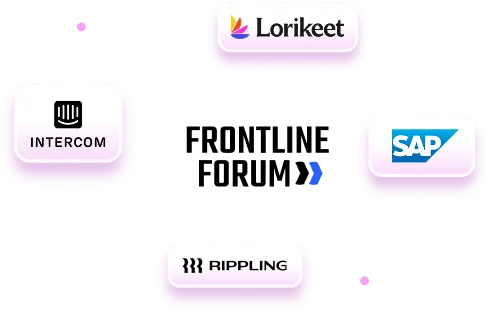
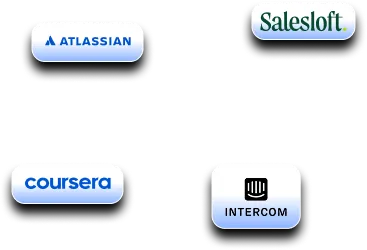
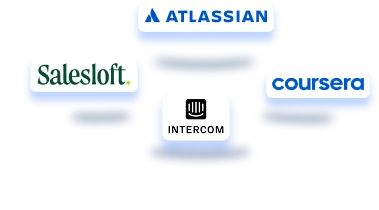
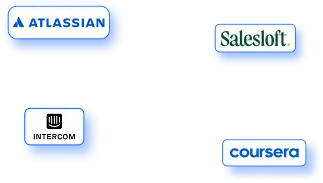
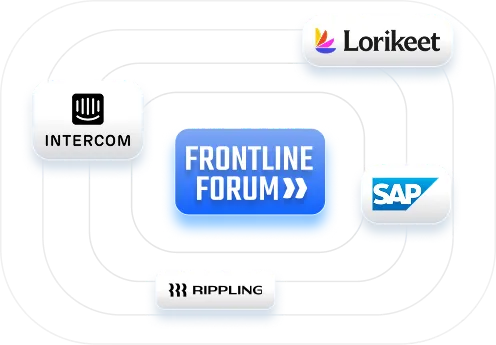
.webp)